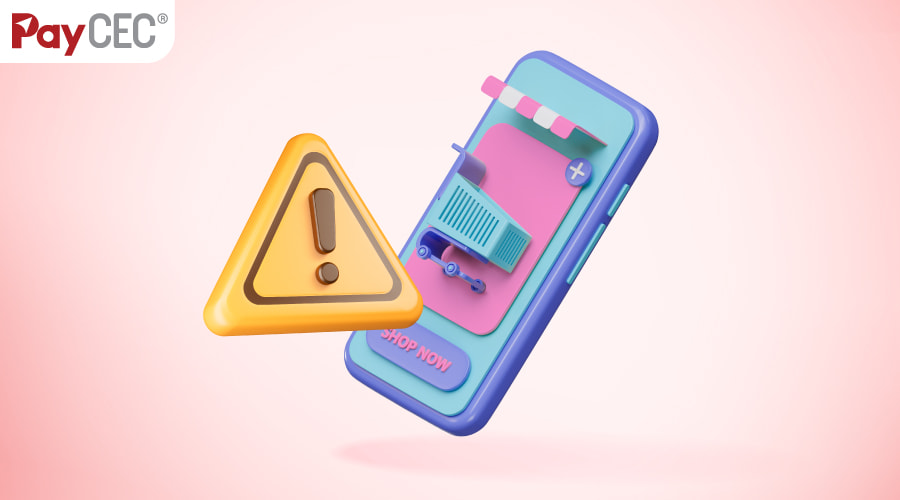- Hotline +65 6631 8332
The difference between payment gateway and payment processor - Simple ways to understand
Monday, 16 Aug, 2021

This article is a part of PayCEC payment insights
Follow PayCEC - global payment gateway to get updates on the latest payment trends and ecommerce news
What's inside?
Payment industry is created from many different parties and relevant organizations including banks and financial institutions. There are a few people still misunderstand between joiners in the payment field such as Payment Gateway vs Payment Processor. To help you absorb What is the difference between payment gateway and payment processor? Please check the following information.

The difference between payment gateway and payment processor
1 What is payment gateway and payment processor?
1.1 Payment gateway definition
A payment gateway is a sophisticated piece of software that allows online retailers to accept debit or credit card payments from customers. This technology captures payment information from clients, such as credit/debit card information or credentials from ewallet services, and tokenizes this sensitive data before sending it to the processor and banks.
A payment gateway, also known as a payment platform, connects your website to the payment network, allowing secure payment data to flow back and forth. The payment platform authorizes the card information and sends it to your bank for processing when a customer visits your website, inputs their credit or debit card information, and clicks "Send".
To put it another way, a payment platform is the online equivalent of a POS (Point-of-Sale) terminal, which is a physical credit and debit card reader. Both gather payment information before encrypting it and transmitting it to a payment processor for authorization. The main distinction is that e-commerce merchants who use a payment platform never have direct access to their consumers' financial information. The payment gateway handles all of this sensitive data to ensure the high standard of security.
1.2 Payment processor definition
It is a processing organization or a financial institution that manages transactions between the customer's bank and the merchant's bank. The responsibility of the processor is to verify and authorize payments that are received from payment gateways. It can be completed in seconds if the processor finds the card is valid and the account in checkout has sufficient funds to complete the transaction.
Payment processor facilitates electronic communications between acquiring banks, card associations, issuing banks to verify the validation of online card payments. The processors have to meet the transmission security standard and strong transaction-processing capabilities.
2 Misconceptions of payment processors vs payment gateway
You know how important it is to have access to a payment gateway if you want to acquire online payments as a merchant or a business owner. Nowadays, merchants and business owners rely heavily on online payment acceptance and strive to provide their clients with a simple online payment experience. Payment gateways are responsible for operating the front end payment user interface as well as payment processing, acting as a conduit between businesses and customers.
But many people still misunderstand these above definitions and switch their functions mutually. Here are 3 misconception of Payment Gateway vs Payment Processor:

The misconceptions of payment gateway and payment processor
Misconception #1:
Payment Gateway is a type of banking service.
Payment gateways are not banks and do not provide banking services, despite the fact that they permit online payment card processing. Payment gateways are essentially connectors between a merchant's website and a payment processing bank, sometimes known as a financial institution. In some cases, processors can act like payment processing banks as they are only financial technology firms. Moreover, although the payment gateway and the payment processor commonly share the same ownership, which smooths out payment processing services, this does not fundamentally change their nature or function.
Misconception #2:
Payment Gateways Take No Responsibility for Private Data
Because the payment gateway is the merchant's first line of defense against payment data leaks and financial fraud, it is responsible for verifying the merchant's compliance with security standards and encrypting each customer's sensitive data, such as credit card numbers, to ensure that the information is transferred securely between the customer, the merchant, and the payment processor. Therefore, payment gateways and payment processors both are responsible for protecting private data.
Misconception #3:
The money paid by the customer is held by the Payment Gateway
When a consumer makes an order on a merchant's website, the payment gateway secures and saves the transaction data before processing and forwarding the request to the payment processor, who then sends the encrypted data to the customer's card issuing bank for approval.
The information chain is checked once the issuing bank confirms the payment, and the merchant informs the customer that the transaction has been completed successfully within three seconds of the order. The payment gateway never interacts directly with the money of the customer or the merchant.
3 What is the difference between payment gateway and processor?
| Online Payment gateway | Payment processor |
|
A payment gateway is a virtual version of a point of sale (POS) terminal, such as the credit/debit card readers when online shoppers make payment. Unlike physical POS terminals, which are meant for in-person transactions, online payment gateways enable card-not-present (CNP) transactions, in which the buyer and vendor do not meet in person. On the website, in a hosted checkout form, or on a mobile app, credit card information is submitted. This is why payment gateways are so important for eCommerce businesses. |
Payment processors receive information transmitted from payment gateways and cross check the validation of payment orders. Payment processors screen and encrypt the data and communicate them with other parties and banks. |
The primary difference between payment gateway and payment processor:
- Payment gateways capture and deliver credit/debit card data to the payment processor, which is the key distinction. They also inform merchants and consumers about approvals or rejections. They act like front lines which interact directly with buyers.
- Payment processors work behind the scenes, securely routing data between all parties and ensuring that money is settled in the merchant’s bank account. The processors act like backend softwares.
There are still some minor features that differentiate Payment Gateway vs Payment Processor. But the table above already helps you collect the basic difference between a payment gateway and a payment processor. The functions of these platforms might be altered from time to time depending on the demands of contemporary ecommerce.

What is the difference between payment gateway and processor?
Another Component for Secure Online Payment Processing
If you want to accept online payments as an eCommerce business, you'll also need a Secure Sockets Layer (SSL) certificate. By encrypting any data sent or received, this digital certificate establishes a secure link between your site and your clients' browsers. In addition to preventing fraud, an SSL certificate adds a "s" to the "http" in your website's address (e.g., "https").
4 Payment gateway trends in the UK and EU

Payment gateway trends in UK/EU
E-commerce growth in Europe as a whole continues to be high. In mature markets, such as the United Kingdom, France, and Germany, it is slowing slightly. A number of smaller markets, on the other hand, offer appealing potentials. Some other nations are projected to double e-commerce market scale in 2021 and 2022 with the Czech Republic (16 percent), Italy (14 percent) and Spain (13.5 percent) ranking highest for predicted growth.
Mobile commerce is the primary driver of growth, outpacing the whole e-commerce market by a wide margin. Mobile devices are currently the primary way to spend money online in the United Kingdom and the Czech Republic. Ireland, Norway, and Sweden, on the other hand, stand out as early adopters of smartphone-based payments.
| Business to consumer e-commerce market value 2021 | |||
| Country | Currency | E-commerce market size | Compound annual growth rate (2017-2021) |
| UK | GBP | €178.5 billion | 9% |
| France | EUR | €81.7 billion | 10.5% |
| Germany | EUR | €73 billion | 7.3% |
| Spain | EUR | €30.4 billion | 13.5% |
| The Netherlands | EUR | €22.5 billion | 11% |
| Italy | EUR | €21.2 billion | 14% |
| Denmark | DKK | €15.4 billion | 10.5% |
| Sweden | SEK | €12 billion | 9% |
| Norway | NOK | €10.9 billion | 13% |
| Switzerland | CHF | €10.1 billion | 7.5% |
| Belgium | EUR | €10.1 billion | 8.5% |
| Poland | PLN | €9.9 billion | 10% |
| Austria | EUR | €9.2 billion | 8% |
| Finland | EUR | €8.5 billion | 11% |
| Ireland | EUR | €7 billion | 8.6% |
| Czech Republic | CZK | €4.4 billion | 16% |
| Portugal | EUR | €4.3 billion | 12% |
| Luxembourg | EUR | €0.7 billion | 8% |
Source: J.P. Morgan 2019 Payments Trends - Global Insights Report: Data has been provided to J.P. Morgan Merchant Services by Edgar, Dunn & Company.
4.1 Credit/Debit Cards still a priority
When it comes to online transactions, cards are still the most popular mode of payment in the majority of European markets. Shoppers in the continent prefer to purchase with major card payments that have strong brand recognition. It is popular to see customers shop with Visa payment cards, Mastercards or American Express cards and Discover cards. Consumers will virtually always have at least one card in their wallet, thus merchants can profit from streamlining their card payment processes.
When consumers go online shopping, they feel safe and confident to purchase products or services from merchants who implement 3D secure in their payment gateway. With advances in online anti-fraud technology such as 3D Secure, the markets are expected to remain card payment methods as an essential part of the payments landscape in the near future.
4.2 Recurring payment and subscription
In the future, the expansion of subscription services across Europe may boost direct debit payments. Merchants who accept recurring payments should also consider direct debit, as well as credit and debit cards. Bank transfers and open bills, on the other hand, would be unsuitable for such businesses.
4.3 Digital wallets on the rise
Consumers' anxieties of giving card details directly with retailers have been alleviated by digital wallets, which have become a popular payment option for e-commerce transactions.
4.4 Mobile commerce
Paying via a mobile device has become normal throughout European markets as time spent on smartphones increases and app-based payment systems rapidly escalate. Merchants also should pay attention to mobile payments to explore the potential segment markets.
Read more:
- Online Payment Gateway
- Online payment gateway providers
- Difference between payment gateway and merchant account
- What is difference between 2D and 3D payment gateway?
- PayCEC international payment gateway - The best international payment platform
About us
PayCEC was established in response to the growing need of businesses to accept online payments more quickly and easily. In the new media era, our payment flow has evolved to work seamlessly and effectively across all platforms and devices. We pride ourselves on combining superior technology with first-class customer service.
PayCEC is a truly global payments platform that not only allows customers to get paid but also withdraws funds to their Business accounts in various currencies.
We have created an open and secure payments ecosystem that people and businesses choose to securely transact with each other online and on mobile devices.
PayCEC Team
Tag
News
Business
Products

who we are
about us
We are honored to serve as your reliable business partner and financial service provider in the industry and other business-related services. With the help of our professional staff, to help merchants to achieve their goals for the development and expansion of the international business market.
Our payment flow has developed in the e-commerce world to perform seamlessly and effectively across all platforms and devices. We take pleasure in combining technology with customer service, to solve your concerns at the moment.
PayCEC is a fully worldwide payment network that not only allows merchants to be paid immediately and securely, but also allows them to withdraw money in multiple currencies to their company accounts.
































 +65 6631 8332
+65 6631 8332






 Processing
Processing